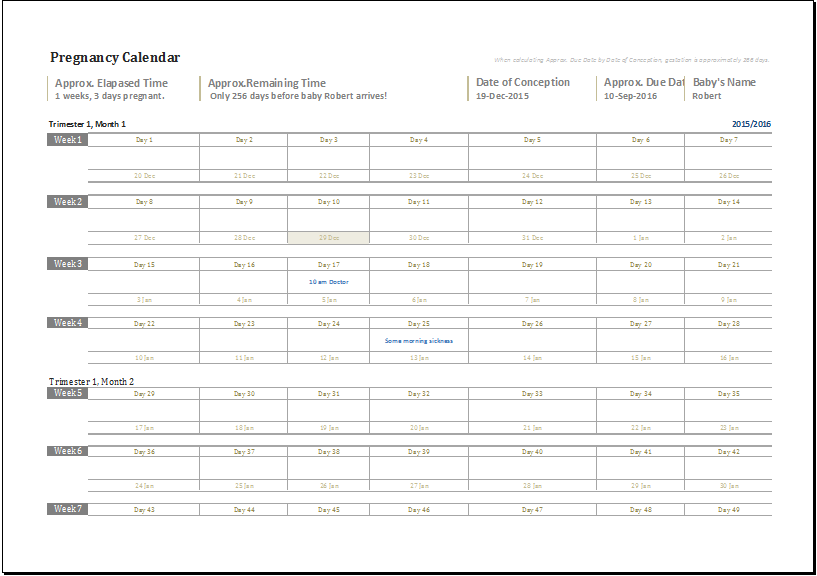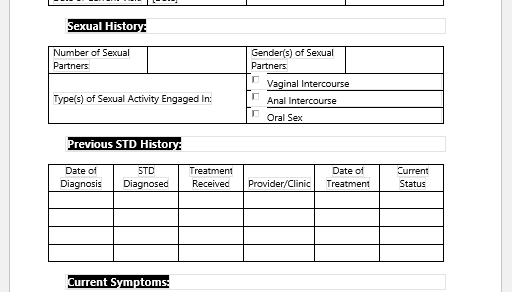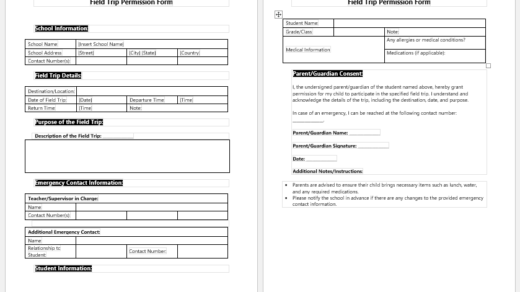A pregnancy calendar is termed a tool for recording weekly changes in the pregnancy as it progresses. These changes are important to track to make sure that fetus is healthy and does not carry permanent damage. It also ensures that the fetus is fully nourished and does not require any extra procedure for normal delivery.
Full-term labor spans about 36-40 weeks and includes drastic changes which should be monitored closely. From a clump of cells to becoming a fetus requires many changes that should happen with accuracy otherwise, the fetus suffers from permanent defects. Due to these reasons, healthcare professionals keep a close eye on pregnant women and make sure that their pregnancy goes smoothly.
During these 36 weeks of labor, the health of the fetus is ensured through ultrasound, and blood tests of the mother to make sure that her hemoglobin is up to the mark. Fetuses are required to be of a certain weight and development at a designated week which makes doctors believe that the pregnancy is running smoothly. Many fetuses are underdeveloped and can be observed through ultrasound and other tests which helps the doctor to assist the fetus through hormones and medication to continue the process of development.
Weekly progress
Each week is a milestone for the fetus as it develops more and more and organs start to function. It consumes its nourishment from its mother and continues to develop from a bunch of cells to organisms with fully functional organs and maximum organization.
Rapid changes that occur during the lifetime of a fetus are mentioned below,
Week 1-4: during the initial days, the fertilized egg travels down to the uterus via fallopian tubes. It is a disorganized lump of cells that implants itself within the uterus.
Week 5-8: at this stage, the embryo, an organized mass of cells, is turned into a fetus with identifiable arms, legs, head, and body. Fetus can now be seen on an ultrasound machine.
Week 9-12: this is the stage of rapid growth where the fetus develops organs and is also able to swallow nutrition.
Week 13-16: during this stage of pregnancy, the fetus is considered a baby because it has fully developed organs and can also move within the placenta.
Week 17-20: all the systems of the baby are developed and functional. During this stage, the mother may experience regular movements.
Week 21-28: Following this time, the baby is able to open and close its eyes, the lungs are developing rapidly and the uterus is being prepared by false contractions.
Week 28-36: during this period, the baby is gaining weight by absorbing nutrition. The immune system is being developed and essential nutrients are being stored.
Week 36-40: this period refers to full-term labor and the mother can deliver the baby at any time. Baby is fully developed and can survive the outside environment easily.
During all these stages, a mother experiences a lot of changes as well, which can be a part of the pregnancy calendar.
During the initial weeks or 1st trimester, the mother experiences morning sickness, nausea, strange cravings, etc. 2nd trimester is relatively better because the baby is growing and is also consuming food. Movement can be experienced during this stage. 3rd trimester is the most difficult period because mothers experience shortness of breath due to heavy weight and can also face discharges.



